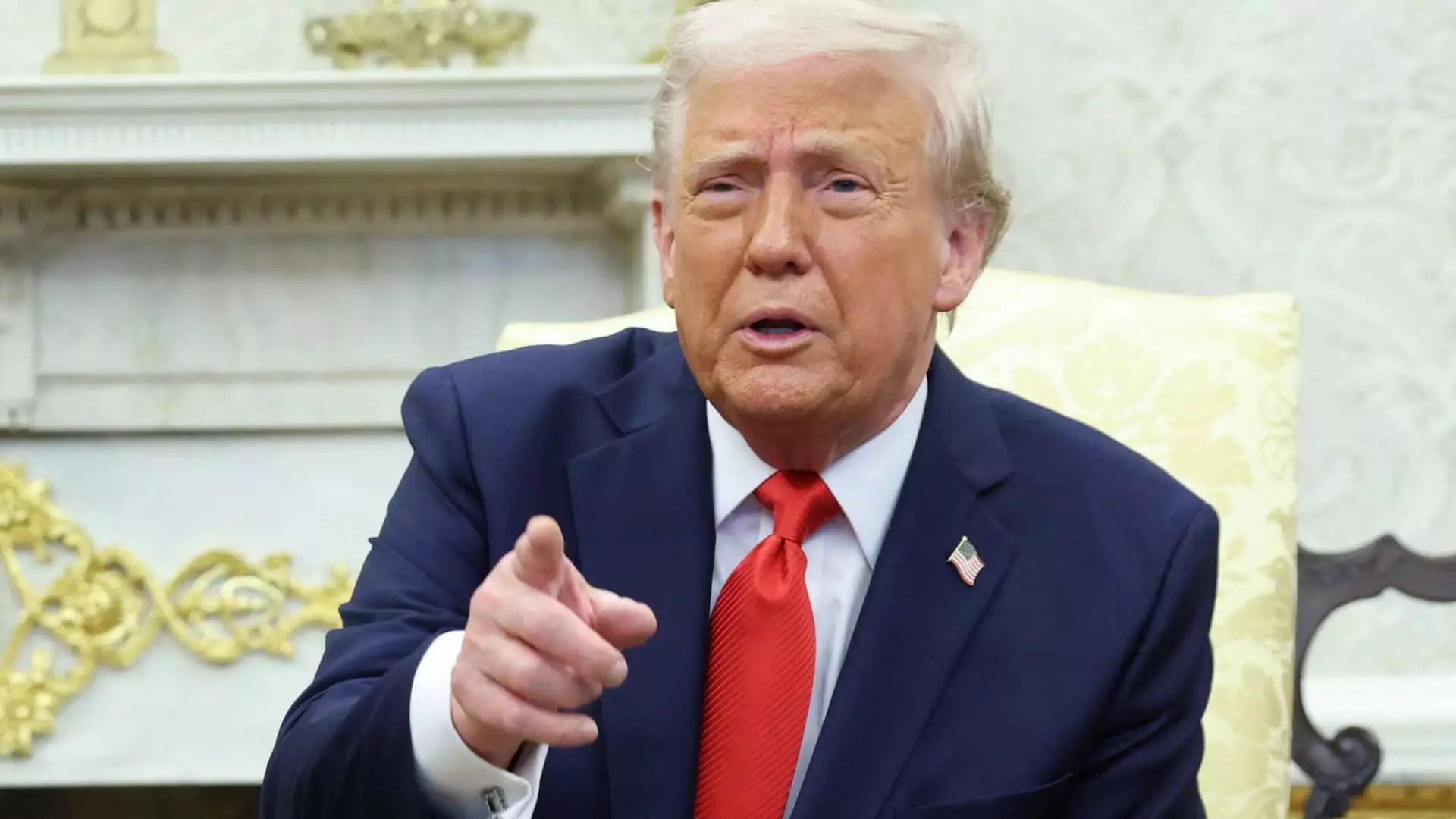In a political climate often characterized by partisan bickering and volatile market responses, President Donald Trump’s recent remarks about assisting American automakers may signal a new era for the automotive sector. As he spoke with Salvadoran President Nayib Bukele at the White House, Trump’s assertion that car companies “need a little bit of time” to transition their production back to the U.S. ignited a resurgence in share prices across the industry. It’s a noteworthy moment that highlights the delicate balance between corporate reliance on global supply chains and the increasing pressure to produce domestically.
This should not be viewed merely as a market fluctuation; it points to a pivotal shift in Trump’s strategy for industrial recovery in America. By expressing intent to facilitate the transition of parts production from countries like Canada and Mexico back to the U.S., the administration is taking steps that could fundamentally alter the landscape for domestic automakers. Underlining this potential is the movement in stock values—companies such as Ford and General Motors saw increases of 1% to 4%, reflecting the market’s optimistic response to the president’s overtures. What this reveals is not just the power of political discourse but its ability to tangibly influence economic outcomes.
The Reality of Tariffs and Their Economic Fallout
However, it would be naive to overlook the weighty backdrop of Trump’s trade policies, particularly the 25% tariffs imposed on imported vehicles as of April 3. These tariffs were meant to galvanize domestic production but have brought about a conundrum for manufacturers. While Trump eased tariffs for certain countries and exempted some tech firms, the enduring automotive tariffs have left many companies scrambling to recalibrate their strategies.
The responses from various automakers to these tariffs illustrate a landscape marked by uncertainty. For instance, Ford and Stellantis have initiated temporary deals to attract consumer interest amidst rising costs, while other manufacturers like Jaguar Land Rover have halted shipments to the U.S. altogether. Such reactions cast shadows on the purported growth opportunities, raising pertinent questions about the sustainability of this proposed assistance.
Market Sentiment and Consumer Impact
Interestingly, as Trump’s comments reverberate through the industry, it’s crucial to consider the consumer perspective. Manufacturers like Hyundai, attempting to stabilize the market by holding prices steady for at least two months, reflect an acute awareness of consumer anxiety regarding pricing stability. When automakers are forced into a corner by tariffs and shifting market demands, the consumer often bears the brunt of the impact.
From my center-right liberal viewpoint, it raises a complex issue: is it prudent to rely on government intervention to prop up industries, or should we advocate for a more free-market approach? While I appreciate Trump’s pro-business stance, the mixed messaging amidst changing tariffs complicates consumer confidence and long-term investment strategies.
In summation, the interplay between Trump’s proposed support and the realities of existing tariffs draws a complicated picture for the automotive industry. The optimism displayed in stock prices might just be a reaction to the administration’s willingness to listen, but without stable, coherent trade policies, that optimism could quickly turn to uncertainty.


Leave a Reply